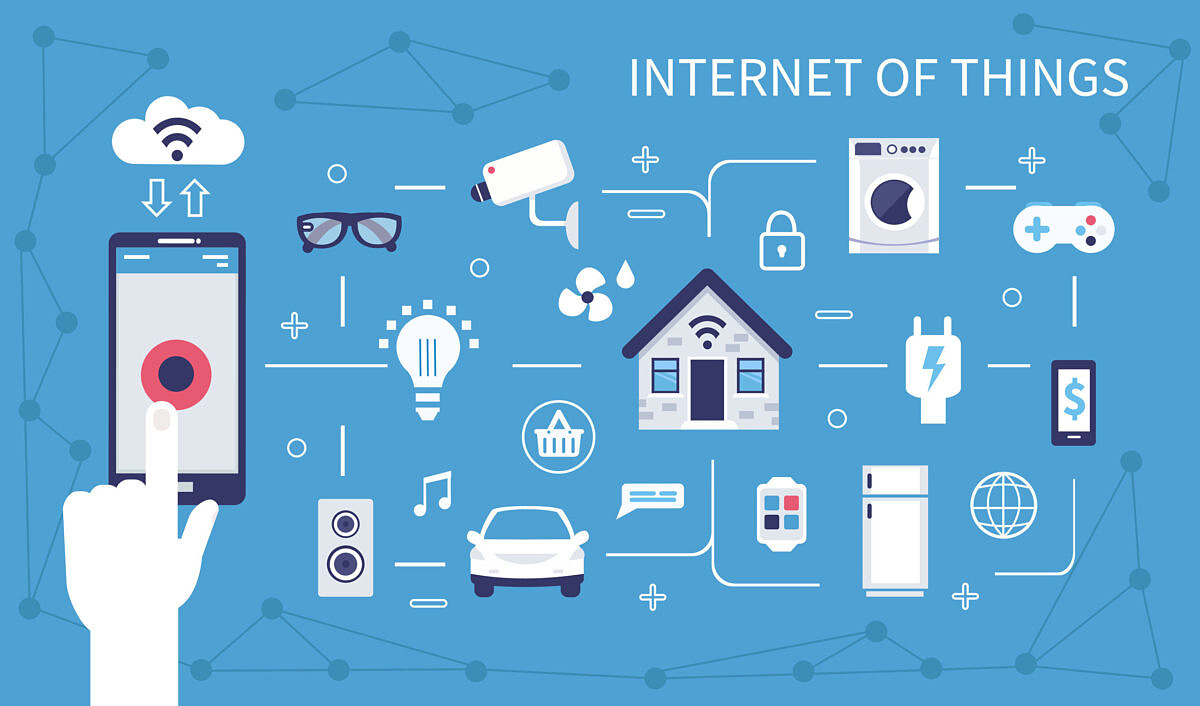That’s why the Internet of Things needs artificial intelligence
Artificial intelligence can revolutionize the Internet of Things. Both technologies have already been well-known phenomena of the digital age for years, but they can only reach their full potential when combined.

Artificial intelligence makes the Internet of Things complete
The Internet of Things (IoT) refers to the connection and communication of smart devices with each other via the internet. For many companies, IoT has become a key technology. The success of IoT-based products and projects can be massively increased when artificial intelligence comes into play. This is confirmed by a study conducted by analysis company IDC, which found that around 90 percent of the 450 companies surveyed exceeded their expectations by combining IoT and artificial intelligence. Read on to learn why the Internet of Things and artificial intelligence may become central key aspects for company success.
Networked things need AI to become truly intelligent
Artificial intelligence (AI) is proving to be a real game changer for companies that conduct IoT projects. The potential of IoT can only be fully realized with analytics. Users manage and monitor connected things remotely, but they only become truly “smart” when AI is implemented. Smart devices can learn from their own activity as well as from each other and continue to evolve in this way – which means that smart devices are increasingly able to make their own decisions.
An example from the private sector is the robot vacuum cleaner. It is connected to the Internet and uses sensors to detect or avoid obstacles in the home. By using its AI or networking into the smart home, the machine is able to learn and remember where there are obstacles, which routes have already been covered, and which still have to be cleaned. The AI device directs itself and works more and more independently and safely through continuous self-optimization.
Create added value from collected data
The Internet of Things provides companies with a huge amount of data. Of course, collecting data is only useful if it is analyzed and put into context. This is where artificial intelligence comes into play: as a supplement to IoT, AI processes and analyzes the data. This enables companies to draw precise conclusions and ultimately improve products, optimize processes, and secure their position as a long-term competitive player in the market. Networked devices are becoming progressively autonomous, delivering more and more data that can be interpreted and used, and are thus becoming increasingly valuable for companies.
AI as a game changer in industry
In industry, AI may become a game changer in the coming years. This development focuses on drones, autonomous robots, and self-driving transport vehicles. Thanks to constant advances in navigation technology, new robot generations are emerging. In the areas of
- e-commerce,
- maintenance,
- safety,
- transport and logistics as well as
- agriculture,
intelligent robots can play a vital role in the future. Examples of these solutions include smart irrigation and fertilization systems in agriculture, truck platooning in transport logistics, and chatbots in e-commerce customer service. Sophisticated AI systems are gradually expanding the functions and possible uses of robots, which evolve from mere machines to increasingly autonomous beings who not only execute commands but also interact with other machines and people and are continuously learning. Since the e-commerce industry has grown enormously in recent years – and even more so since COVID-19 –and logistical processes in warehouses, for example, need to be optimized to meet the rising demands, artificial intelligence is becoming increasingly important as a central supplement to the Internet of Things in this sector.
The key benefits of AI in the Internet of Things at a glance
- Technical plants, equipment, and machines are becoming increasingly complex, and IoT and AI can support workers in the technical sector. Furthermore, robots can perform human tasks and thereby save companies a great deal in terms of personnel costs.
- The analysis of data obtained from smart devices improves processes in product development. Companies gain insights into optimization potential as well as problems with their products and learn to better understand the needs of their customers. This allows entire business and production processes to be optimized on a sustained basis.
- Thanks to M2M (machine-to-machine) communication, industrial plants can be monitored and the process data can be evaluated, revealing the potential for increasing the efficiency and effectiveness of all processes.
- Artificial intelligence is taking over more and more tasks that were previously carried out by humans. The capacities this frees up can be used to tap into new business segments and develop new services.
Outlook: The future of IoT together with artificial intelligence
The price of AI is falling, making it more financially attractive and worthwhile for companies to utilize the IoT and AI as a duo. Due to AI, smart devices will become more flexible in the future and will not only work in familiar environments and structures but also handle restructuring better. Plants that already function autonomously to some extent will become multi-networked autonomous systems. Perhaps then it will be people supporting machines, instead of the other way around. To this end, interaction with machines will become more and more natural, steering away from display operation and towards human-machine communication. Analyzing data from the Internet of Things in combination with artificial intelligence is the key to this development.





